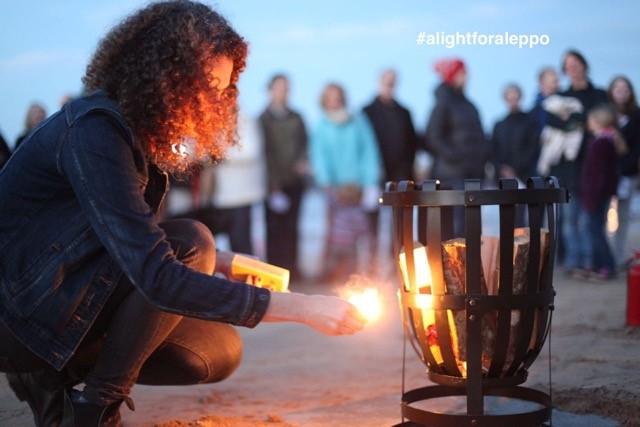“Let’s turn on a light for Aleppo”. This could be the urgent call we are getting from Syria. And it is the cry we have answered.
The background
Over the last few weeks of winter, frost has engulfed the Middle East. In Lebanon, temperatures have fallen below zero within a few days and for two weeks they have remained very harsh. The people of Beirut, the country’s capital, who were accustomed to lead a Western lifestyle until a few years ago, are now forced to burn their own shoes in order to have a warm room at home.
Likewise in Syria: in Damascus, the temperature has remained stably close to zero – if not below it – for several days. Snow was generous and it blocked the traffic and the basic services. Last week, our project manager of the area, Ayham Khouly, told us that the Syrian government had to grant a ten-day suspension of the activities. It is too dangerous to cross the streets covered of ice and snow without appropriate means and equipment.
Syria in the frost and in the stillness
In Syria, snow and cold are not great news. Some time ago, Father Ibrahim al-Sabagh from Aleppo, reminded us that low temperatures are “famous” in the country. Nonetheless, in recent years, the chances to face bad weather have remarkably reduced.
As a matter of fact, the international sanctions approved against the Syrian government in June 2020 have caused a substantial impossibility to buy fuel, the only means of heating for Syrian homes. In order to have hot water available, people used to turn to electricity generators, powered by diesel oil. Once diesel oil is removed, hot water is removed. But the cold is not removed.
The Syrian government has tried to relieve the population’s difficulties by distributing a few litres of fuel free of charge. But the efforts of the authorities are not proportioned to the needs of the people: it is estimated that a household needs about 600 litres of fuel to survive the winter. The government distributes 50 litres only.
No light in Aleppo
A further complication is involved in this situation: the public administration is no longer able to consistently supply the population with electricity. The devastation of war, the destructive effects of international sanctions and a clumsy attempt to revolutionize energy consumption in Syria have led to electricity being available for just a few moments a day: no more than two or three hours.
In Northern Syria, in the city of Aleppo, which is the symbol of the war that had devastated the country, material destructions are the scenario of this new poverty. And to tragedy is added tragedy.
A light for Aleppo
That is why we have engaged with our project A light for Aleppo. In this Syrian city, which became the symbol of the conflict that had devoured every reality of the country, Pro Terra Sancta has been installing solar panels in order to guarantee energetic autonomy to the household. The list of beneficiaries is carefully drawn up according to the composition of the household: depending on the number of children, the elderly, the vulnerable people, this energetic facility is carried out on a different scale of urgency. And this means that our offices are committed to getting to know the beneficiaries of the initiative on a personal level. Stories, relationships, tales lay behind the names on the paper…The latter tell the mild listening of our operators
The panels we install consist of two types: some are used to heat water and pump it into the houses; others are used to supply electricity to users (refrigerators, light bulbs, electrical appliances…). The cost for each solar panel, covered by Pro Terra Sancta, is about 500 euros: the equivalent of the average income of five employees in Syria.
The panels allow the heating of 200 litres of water or the supply of 3 Ampere of electrical current during daylight hours (and one during the night). Figures that mean life: they mean a light switched on for those who want to study, food stored for a few days, the cleaning of a domestic environment; even, perhaps, the functioning of medical equipment from which a breath of life is suspended.






